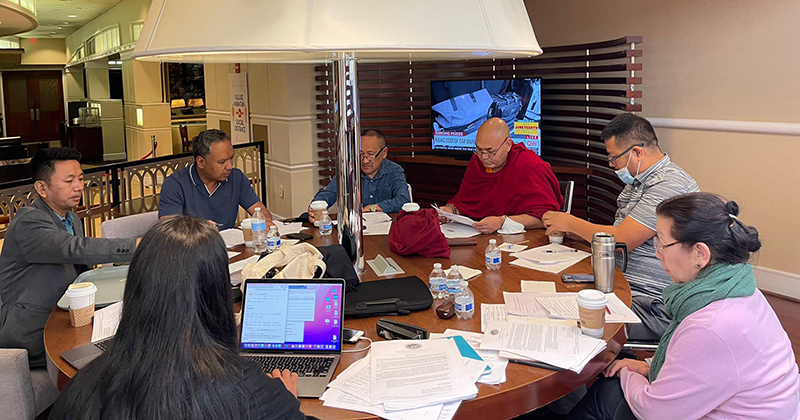Washington D.C — The eighth World Parliamentarians' Convention on Tibet (WPCT) is scheduled to take place in Washington D.C. on June 22 to 23, 2022. One of the main objectives is to strengthen and coordinate the support of parliamentarians around the world to resolve the issue of Tibet, with a focus on human rights violations and religious repression in Tibet.
This convention, organised by the Tibetan Parliament-in-Exile (TPiE), is a continuation of the previous seven WPCT sessions. Participants from 26 countries, including the Tibetan Parliament in Exile, are expected to attend in person or virtually.
Aimed at strengthening and coordinating support from parliamentarians across the world to resolve the Tibet Issue. The first WPCT was held in New Delhi (1994) honoring the foundational role India has played in the survival of the Tibetan identity after the Chinese invasion and occupation of Tibet. Subsequent conventions have been held in Vilnius, Lithuania (1995); Washington D.C.USA (1997); Edinburgh, Scotland (U.K.) (2005); Rome, Italy (2009); Ottawa, Canada (2012); and Riga, Latvia (2019).
The previous convention held before the 2019 coronavirus pandemic in Riga, Latvia, aimed to gain the support of parliamentarians from different countries and to assess the possible impact on the resolution of the Tibet issue through dialogue with representatives of His Holiness the 14th Dalai Lama and the Chinese leadership.
Since the Invasion of Tibet by the Chinese government in 1949, the people have faced constant and harsh repression at the hands of the Chinese authorities, despite this, they continue to advocate for human rights and freedom in Tibet through non-violent means all over the world. Tibetans strive for the preservation of their religion, culture, identity and environment.
TPiE issued a statement regarding the convention and said,“By holding the 8th WPCT in the United States, a country with fundamental values of democracy and equality, we honor the important role played by the United States Congress in formulating policy initiatives on Tibet, including institutionalizing support through several legislations. We also draw attention to our exile government’s commitment to democratic norms and values. With the farsighted vision of His Holiness the Dalai Lama, in exile, we have a democratic and popularly elected leadership that is accountable to the Tibetan people through the Tibetan Parliament-in-Exile."
The location of this convention holds greater importance, as in December 2020, the United States Congress passed legislation, that reaffirms the rights of Tibetans to choose a successor to their spiritual leader, His Holiness the 14th Dalai Lama. The U.S. bill also promotes dialogue between the Chinese government and His Holiness the Dalai Lama or his representatives.
This WPCT will have panel discussions and briefing sessions on various issues facing Tibet by the honorable members of parliament of different countries, experts and activists. The highlights of the eighth WPCT will be a video message from His Holiness the Dalai Lama and greetings from Speaker of the U.S. House of Representatives honorable Nancy Pelosi.
The main objectives of holding the eighth World Parliamentarians’ Convention on Tibet are:
1. For parliamentarians to take a leading role in the international area on the question of survival of the Tibetan identity and its rich cultural heritage which has the potential to contribute for a more peaceful world.
2. For parliamentarians to join the world leaders in expressing concern over human rights violation and religious repression in Tibet.
3. For parliamentarians to consider initiatives in their respective countries to support early resumption of dialogue between the representatives of His Holiness the Dalai Lama and People’s Republic of China, for a negotiated solution on Tibet.


![Tibet has a rich history as a sovereign nation until the 1950s when it was invaded by China. [Photo: File]](/images/stories/Pics-2024/March/Tibet-Nation-1940s.jpg#joomlaImage://local-images/stories/Pics-2024/March/Tibet-Nation-1940s.jpg?width=1489&height=878)
















